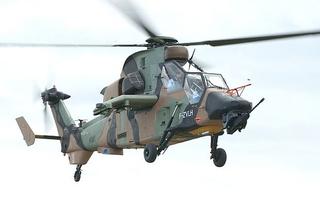 Inevitably, much is made of the Turkey "crisis" in the newspapers this morning, one of the early reports up on the net coming from The Times, which headlines: "Turkey left out in cold as Austria digs in heels over EU entry talks".
Inevitably, much is made of the Turkey "crisis" in the newspapers this morning, one of the early reports up on the net coming from The Times, which headlines: "Turkey left out in cold as Austria digs in heels over EU entry talks".This is a reference to the frenetic last-minute diplomacy and apocalyptic warnings of the consequences if the EU rejected Turkey, as Jack Straw chaired an emergency meeting with his EU counterparts in, as The Times puts it, "a bid to persuade Austria not to torpedo the membership talks." Foreign ministers, meeting in Luxembourg last night, were predicting the chance of reaching agreement was no better than 50-50.
Austria, as many readers will already know, has demanded that Turkey be offered a "privileged partnership" as an alternative to full membership, an offer that Turkey has made clear is unacceptable. Austria is out-voted by 24 to 1 on the issue, but like all EU countries it wields the veto.
Interestingly, we are told that the US government, amongst others, has applied pressure on Austria, warning it not to reject its Nato ally but, we suspect, it is just going through the motions.
More to the point, the indications are that Turkey has already written off any chance of membership and is also going through the motions, not least because it suits prime minister Recep Tayyip Erdogan's domestic agenda, and there is always the chance that he can wring economic concessions as the "consolation prize" when the accession talks fail to progress.
One clue to this stance we pointed out recently, when the Turkish government drew back from European involvement in a $10 billion armoured vehicle contract, deciding to go it alone, instead of working with European manufacturers.
 More recently, however, there has been another sign of a strategic shift, this one relating to the government's decision to reframe a $2 billion contract to equip the Turkish Army with attack helicopters.
More recently, however, there has been another sign of a strategic shift, this one relating to the government's decision to reframe a $2 billion contract to equip the Turkish Army with attack helicopters.Back in the heady days of November last year, as the accession talks with the EU were agreed, the talk was of a European purchase, with Eurocopter's Tiger (above, left) emerged as the frontrunner. Then, it was quite openly being suggested that Ankara was seeking to boost its membership bid by offering large-scale business deals with European manufacturers.
 Furthermore, such had been the structure of the original contact conditions for the helicopter bid that US firms had actually been prevented from participating. The Turkish Undersecretariat for Defense Industries (SSM) had expected international manufacturers to provide with their bid proposals a preliminary sale authorisation from their governments, something which, legally, US suppliers could not do. Congress will only approve arms exports once the commercial details are agreed.
Furthermore, such had been the structure of the original contact conditions for the helicopter bid that US firms had actually been prevented from participating. The Turkish Undersecretariat for Defense Industries (SSM) had expected international manufacturers to provide with their bid proposals a preliminary sale authorisation from their governments, something which, legally, US suppliers could not do. Congress will only approve arms exports once the commercial details are agreed.A few days ago, however, this stance was quietly reversed, specifically to open the way to US companies to enter the bidding. Now, such companies as Boeing, with its AH-64D Apache Longbow (above, right) – the same helicopter supplied to the British Army – are considering bids.
Once again, therefore, in affairs political, it pays to discount the rhetoric and the flannel and watch what the politicians are actually doing. And here, at the very least, it looks like the Turkish government is paving the way for an exit strategy, with a realignment already taking shape, preparatory to a dose of cold turkey.
COMMENT THREAD
No comments:
Post a Comment
Note: only a member of this blog may post a comment.